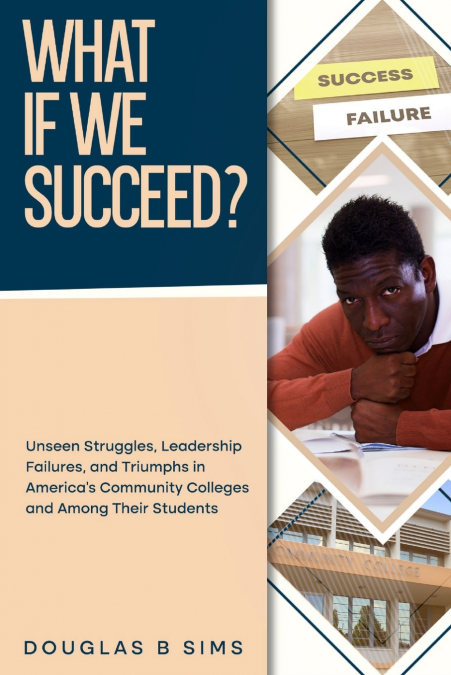
Douglas B Sims
During the Spring term of 2024, I vividly recall a fellow dean’s reaction when the Provost proposed expanding general education course seats to help students graduate faster. With genuine terror in his eyes, he asked, 'What if we succeed?' His fear wasn’t about failure; it was about success-students graduating, needing to hire more faculty, and leadership facing accountability. This fear of success struck me as emblematic of a broader issue in community colleges, which inspired this exploration of their role and challenges.Community colleges, established in the early 20th century, were designed to provide accessible, affordable, and flexible education, bridging the gap between high school and university. They catered to non-traditional students, including adult learners, part-time students, and those seeking career changes. Today, they remain vital for upward mobility and workforce development, particularly for underserved populations. However, significant challenges hinder their ability to fully realize this potential.One of the most pressing issues is inconsistent credit transfer. Students often find that courses completed at community colleges aren’t accepted by four-year institutions, leading to wasted time and frustration. This problem is worsened by complex articulation agreements that vary between institutions. Simplifying these agreements is critical to ensuring a smooth transition for students and preventing unnecessary barriers.Another challenge is the perception that community colleges lack academic rigor compared to four-year institutions. This stigma undermines their value and discourages students. Changing this narrative requires showcasing success stories and building partnerships with universities and industries to highlight the quality of community college education.Limited funding is another significant hurdle. Many community colleges operate with restricted budgets, impacting the quality of education and support services. Advocacy for increased funding and partnerships with local businesses can help alleviate these constraints and align educational programs with workforce needs.Support services like academic advising and career counseling are often inadequate, leaving students without the guidance needed to navigate their educational paths. Expanding these services is vital to helping students balance work, family responsibilities, and school while staying on track to achieve their goals.Equity gaps based on socioeconomic status, race, and geographic location persist within community colleges. Addressing these disparities requires targeted interventions, such as scholarships and mentorship programs, as well as fostering an inclusive environment where all students feel supported.Leadership plays a critical role in addressing these issues, but the fear of success often stifles progress. Leaders must prioritize student outcomes and embrace accountability. A culture of collaboration and innovation is essential, requiring leaders to break down silos, encourage cooperation, and welcome new ideas.Despite these challenges, community colleges have shown resilience and adaptability, evolving to meet the needs of their students and communities. To unlock their full potential, they must address systemic issues, streamline credit transfers, enhance support services, and promote equity and inclusion. Advocacy and communication are also key to building trust and securing resources.Community colleges are the unsung heroes of American higher education. By fostering accountability, innovation, and inclusivity, they can continue to transform lives and communities, fulfilling their promise of accessible, high-quality education for all.